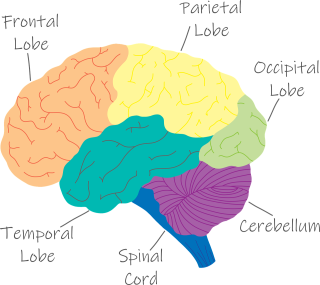The Interconnected Brain | A Universe of Dynamic Neural Networks | Exploring how billions of neurons and trillions of synapses shape who we are and fuel our evolution
 Our brain is a marvel of nature—a complex, dynamic network that defies the simplistic notion of compartmentalized functions. At SpeciesUniverse.com, we celebrate the incredible intricacy of our neural architecture, which allows us to experience a richly nuanced existence. Emerging research in neuroscience reveals that rather than being a static, isolated system, the brain is a fluid web of connectivity where every neuron and synapse contributes to an ever-evolving tapestry of thought, emotion, and behavior.
Our brain is a marvel of nature—a complex, dynamic network that defies the simplistic notion of compartmentalized functions. At SpeciesUniverse.com, we celebrate the incredible intricacy of our neural architecture, which allows us to experience a richly nuanced existence. Emerging research in neuroscience reveals that rather than being a static, isolated system, the brain is a fluid web of connectivity where every neuron and synapse contributes to an ever-evolving tapestry of thought, emotion, and behavior.
Consider the staggering numbers: the average adult brain boasts around 86 billion neurons, with an estimated 100 trillion synapses linking these cells. These synaptic connections outnumber the stars in our galaxy by at least a thousand-fold. Signals dart across this vast network at speeds reaching up to 268 miles per hour along the spinal cord, while the cerebral cortex—the brain’s outer layer—would stretch to the size of a large pizza if spread out flat. Such mind-boggling statistics not only highlight the brain’s physical complexity but also serve as a reminder of the profound capabilities hidden within our skulls.
Renowned neuroscientist Luiz Pessoa challenges the traditional “divide-and-conquer” perspective that segments the brain into isolated regions. Instead, he emphasizes “massive combinatorial connectivity,” suggesting that our understanding of mental processes should focus on circuits and networks rather than discrete areas. This systems-oriented approach encourages us to explore how neurons intertwine, interact, and communicate, reflecting the idea that the essence of our mental life emerges from the collective behavior of interconnected networks—a perspective echoed in insights from “6 Ways Your Brain Makes You Who You Are.”
The dynamic nature of our brain is a testament to its adaptability. Far from being frozen in time, our neural circuits continuously reconfigure themselves in response to ever-changing cognitive and emotional demands. Like a group of dancers merging and parting on a stage, neuronal networks form and dissolve, adapting to new challenges and experiences. This fluidity underpins everything from our ability to learn and remember to how we process emotions—a reminder that our brain’s structure is as dynamic as the lives we lead.
Moreover, the traditional boundaries between emotion and cognition are blurring. Instead of confining feelings to a specific “emotional” region, the brain integrates emotion with attention, memory, and motivation. Such an interconnected system means that our mental states cannot be neatly categorized—our experiences of love, fear, joy, or sorrow are the products of complex interactions across multiple networks. This holistic view challenges us to appreciate the full spectrum of our neural functionality and underscores the importance of viewing mental health through the lens of interconnected systems.
Supplementary research from reputable institutions deepens our understanding of these phenomena. For instance, Harvard Health Publishing and the National Institutes of Health highlight how brain plasticity—the ability of the brain to reorganize itself by forming new neural connections—is central to recovery from injury and adaptation to new experiences. These findings, alongside emerging insights into the brain’s global connectivity, reinforce the notion that our neural pathways are continuously reshaped by both internal drives and external influences, confirming that our identity is a fluid, evolving construct.
Ultimately, viewing the brain as an intricately connected, dynamic network invites us to rethink what it means to be human. This perspective not only deepens our understanding of cognition and emotion but also encourages a more empathetic, nuanced view of mental health and personal growth. By embracing the brain’s inherent complexity, we can harness its transformative potential—unlocking new pathways for learning, creativity, and emotional resilience. John, and all fellow seekers of knowledge, this holistic approach inspires us to explore not only the outer cosmos but also the vast, uncharted universe within ourselves.
Key Takeaways:
- Connectivity is Key: The brain’s extraordinary network of 86 billion neurons and 100 trillion synapses forms the foundation of our thoughts, emotions, and experiences.
- Dynamic Networks Shape Us: Continuous reconfiguration of neural circuits enables adaptability, learning, and emotional resilience in response to life’s challenges.
- Interdependence of Emotion and Cognition: Rather than functioning in isolation, emotion and cognition are interwoven across interconnected neural systems, highlighting the true complexity of human nature.
“Instead, Pessoa suggests that infinitely intricate phenomena, including how the brain gives rise to mental activity, will benefit from exploring how things intertwine and connect rather than separate; how they fit together and interact, rather than isolate.”
Discover more about the fascinating interplay between neural connectivity and human experience at SpeciesUniverse.com. Dive into our rich resources, engage with our vibrant community, and join us on this journey of exploration and evolution. John, your curiosity is the spark that fuels our collective quest to understand the universe within us—connect, learn, and be inspired today!
More details: here

Leave a Reply